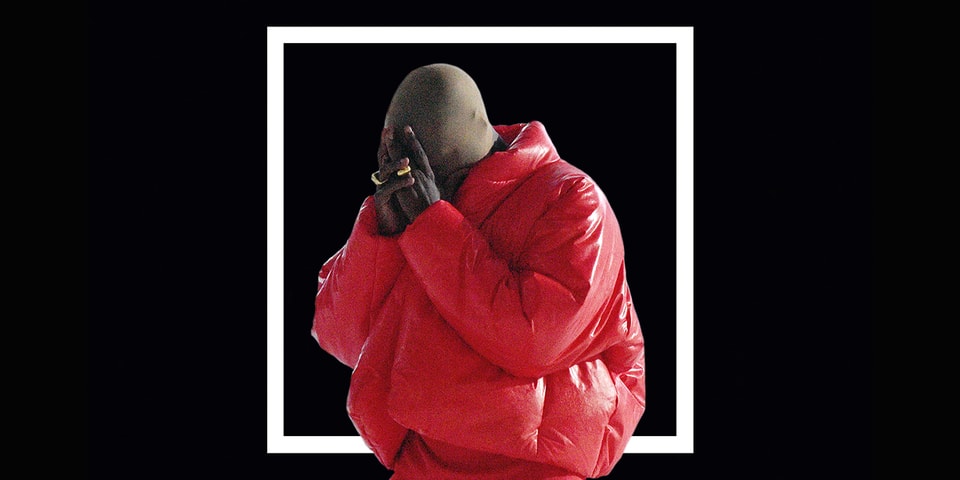
Kanye West’s tenth album — DONDA — opens unlike much of his previous, delivering a trance-inducing chant that repeats his late mother’s name for 52 seconds without pause. “Donda, Donda, Donda, Donda…” Syleena Johnson repeats on project opener “Donda Chant,” doing so in a manner that nearly replicates the sound of a beating heart approaching its end. The stylistic choice to place the mantra as the first track alerts listeners of the project’s direction, and in many senses, displays the album’s themes front and center: family, loss, and spirituality.
On the 27-track DONDA, Kanye contemplates his faith much like he did on 2004’s iconic “Jesus Walks,” interweaving his convictions and his doubts in equal manner, updating his pedigree of fusing the sacred and the profane. He takes the conceptual underlay of the track and turns it into an empire fit for the heavens. There are Jesus is King‘s signature Gregorian chants and silky hammond organ keys, Yeezus’ brash 808s, skittering glitched-out synths, and warfare-ready percussion, with pockets of Graduation and 808s & Heartbreaks scattered throughout. DONDA is transitional, wherein Ye takes from his past to inform his present, transforming his troubled history into a cinematic coup de maître we’ve not seen from him in years.
For over a decade, Kanye has continued to struggle both publicly and privately with the death of his mother, often blaming himself for the calamitous consequences. Though she passed, her teachings remain, ever-so molding him into the devout family man he has now become. DONDA sees Ye evolving, in many senses overcoming those struggles by embracing his spirituality and his family, trading bible-rehearsing platitudes for something far more personal. He broadens his focus from the loss of his mother to include the loss of his wife, dissecting the zeitgeist surrounding his highly-publicized separation from Kim Kardashian, and more.
On “Jesus Lord,” Ye croons about his mother’s untimely passing and the scarring visions of his cousin in a jail cell, further dousing the track’s conclusion with a damning narrative told by Larry Hoover Jr., who speaks endlessly on how his children and grandchildren have never met his father due to America’s crooked justice system. On “Never Abandon Your Family,” Ye’s brooding vocals “I’m losing my family, my family” are met with a sample of Donda proclaiming “no matter what, never abandon your family.” On “Lord I Need You,” Ye confronts the reality of his separation from Kim Kardashian and the differences that lead to the relationship’s demise, ultimately focusing on the positives by uttering verses that highlight her enduring support — “But you came here to show that you still in love with me” — and their offspring. He continues to showcase these themes on the sentimental ballad “Come to Life,” one of Ye’s most emotionally-forward tracks to date. Over poignant piano keys and long, drawn-out synths, he speaks on how he wishes he listened to Kim’s thoughts and dreams, ultimately relaying that he hopes to die with her by his side. Kanye shows that he longs for love despite all the flashing lights and incalculable fame.
Across DONDA, Ye remains an open book as he speaks on his spiritual revelations; he’s sincere as he embraces his characteristic contradictions and he’s upfront about confessing his problems. Religion here is more stylistically dominant than the in-your-face Jesus is King, and it’s contents are far more traditional to Kanye’s own pre-2016 discography. This is Kanye bringing back the old Kanye, the Kanye that expels his thoughts in the confessional rather than at the preacher’s pulpit. He succumbs, placing listeners as the priest and himself as the penitent. DONDA is more personal than his other recent musical escapades, a sort-of hip-hop homecoming that sees himself reintegrating into the artform he helped create and evolve. He’s done this in a manner that unites his hip-hop kin, the various new gen artists following in his boundary-breaking footsteps.
Ye and Playboi Carti’s chemistry is immense on Christian Drill anthem “Off The Grid,” wherein Fivio Foreign follows the vampire-turned-rapper with some of his most introspective bars to date. Houston natives Vory and Don Toliver shine with vocals straight out of an angel’s handbook, with the former offering his aptitude on a variety of the album’s highlights. Lil Baby floats with heart-rending confidence alongside choir-like singing from The Weeknd on “Hurricane,” one of the fan favorites from 2018’s unreleased YANDHI. Even YZY SND signee KayCyy, a promising newcomer that radiates originality in an era filled with repetition, boosts the album with his celestially-sung, nearly hallucinogenic bars.
Baby Keem continues to showcase why he’s Kendrick’s prodigy on “Praise God,” showcasing a fire akin to Ye’s verse on ScHoolboy Q’s unforgettable “That Part.” Even Lil Yachty manages to further his sound with ruminative bars on “Ok Ok,” shedding light on everything from Juice Wrld’s solemn death to putting on for the “broken youth.” The highlight however, is JAY-Z’s return as Ye’s older brother on “Jail,” eloquently rapping “Hol’ up, Donda, I’m with your baby” before appropriately critiquing Ye’s suspect obsession with 45. Ye’s penchant for A&R’ing shines like none other on this album, a talent that DJ Khaled undoubtedly envies. He brings out the best in everyone, seemingly dwarfing much of their solo efforts in comparison.
Of course, there are the occasional weaklings that feel wholly out of place. Pop Smoke’s “Tell The Vision” interlude feels weirdly incorporated, similar to how his posthumous albums have felt like unsolicited money grabs. Ye’s vapid addition of newly-minted homophobe DaBaby, accused-rapist Marilyn Manson, and even the abusive Chris Brown remain smutty in nature, but are undeniably placed within Kanye’s often controversial, and always questionable aura. The problem is that if these characters have been loosely strewn together to showcase Ye’s dismay of cancel culture, he rarely (if at all) manages to expel on why, ultimately leaving the LGBTQ+ community and female victims in his rear view.
Yet the project’s lows don’t detract from it’s stylistic highs. This is Kanye returning from the heavens, gracing listeners with many of the lessons he’s been dealt over the past several years, doing so with his characteristic ipseity that continues to evolve and adapt humanity’s artistic landscape. Whatever the case is, Donda West’s heartbeat lives on in the spirit of Kanye, and her teachings remain at the core of Ye’s tenth LP.
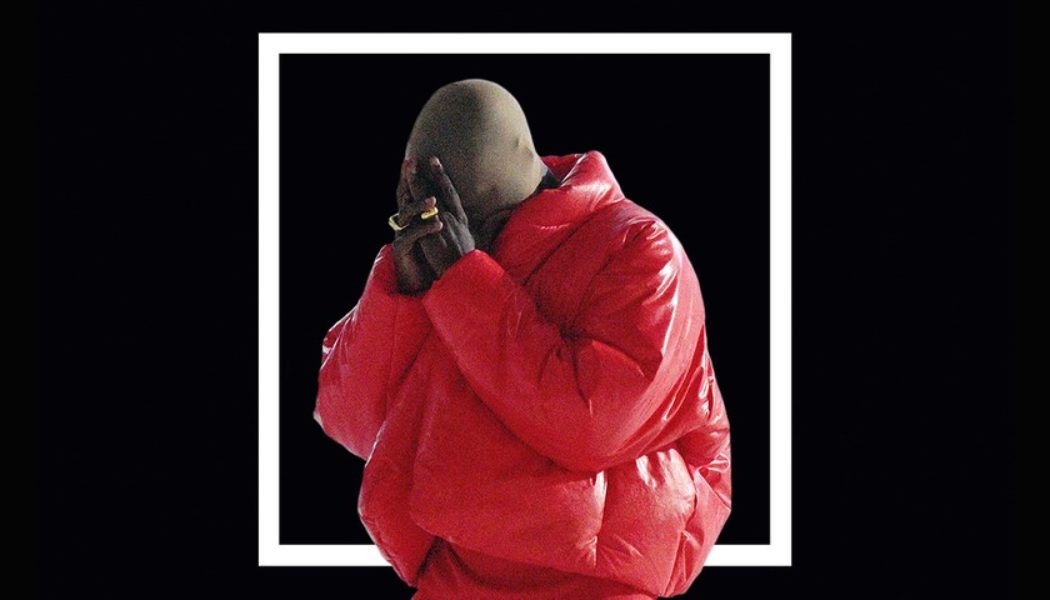
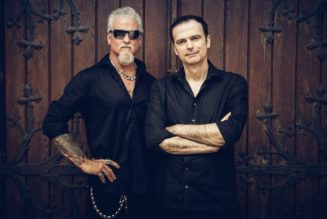
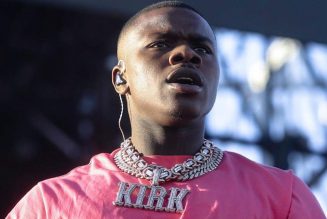

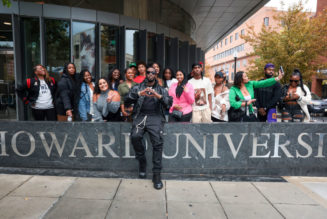



![Whethan On New Album: “It’s Getting In a Spaceship and Leaving Earth Off This Electronic Rainbow” [Interview]](https://www.wazupnaija.com/wp-content/uploads/2020/05/whethan-on-new-album-its-getting-in-a-spaceship-and-leaving-earth-off-this-electronic-rainbow-interview-327x219.jpg)
